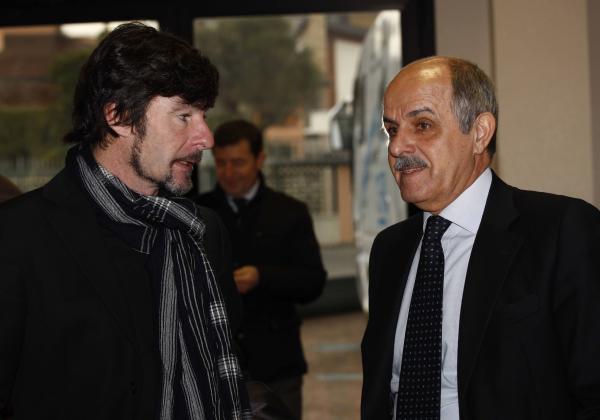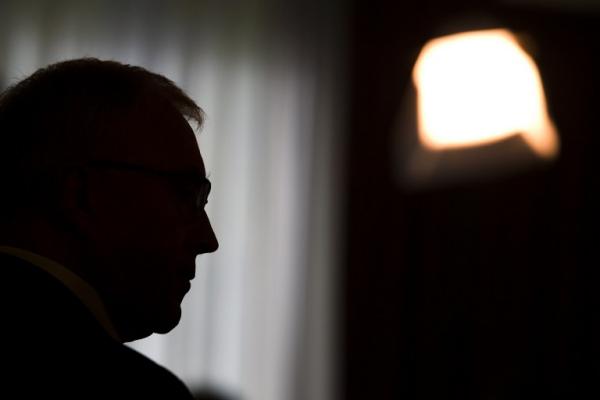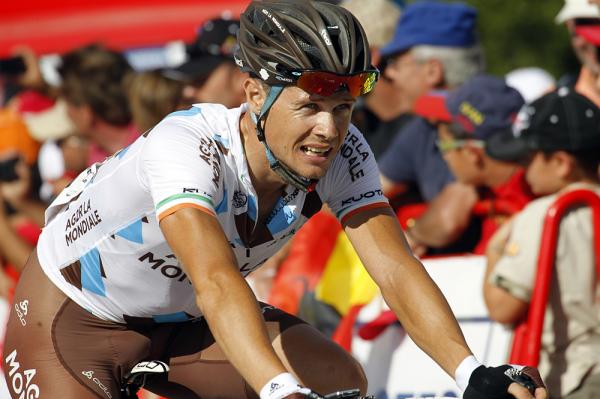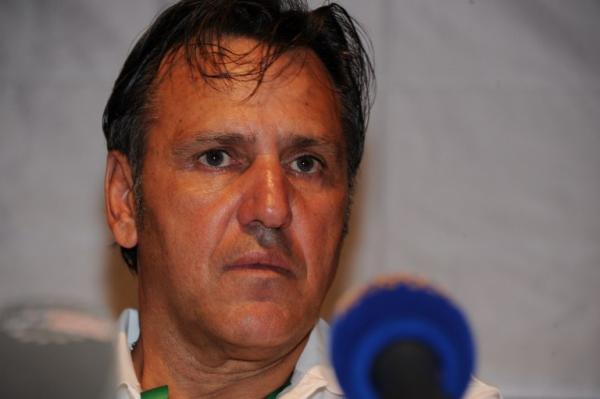Riders call for UCI to launch reforms
Demands for stronger anti-doping measures being voiced




Ahead of the UCI's management committee meeting scheduled for Friday afternoon, and following the sport's greatest doping case around Lance Armstrong, calls within the peloton for the managing body of cycling to launch reforms and stronger anti-doping measures have been growing louder.
On Thursday, the president of the Royal Dutch Cycling Federation (KNWU), Marcel J.G. Wintels, appealled to the UCI to let an "authoritative, independent, international truth and inquiry committee" examine the sport's anti-doping efforts. On the same day, former cyclist Greg LeMond went so far as to demand Pat McQuaid's resignation, alleging the head of the UCI knew "damn well what has been going on in cycling", and calling him "the epitome of the word corruption".
The rider's association CPA has also sent out a letter to McQuaid and the media, targeting not the UCI, but demanding that the managers and team staff that have been involved in doping affairs be excluded from the sport. "The riders demand that the whole [Armstrong] dossier be investigated and that all those who are guilty be named. Too often, only the riders implicated in doping scandals have been punished. The time has come for all those who work in the cycling world who have faulted be prosecuted in the same way," stated Gianni Bugno, head of the association, pointing at certain managers and team doctors who continue to work in pro cycling despite their illicit past.
In its Friday paper edition, L'Equipe has gathered several proposals on what consequences the UCI should draw from the affair. Many actors of the sport are hoping for a set of reforms that would give cycling back some credibility at a time when major sponsors such as Rabobank are turning their backs on bike racing.
Nicolas Roche (AG2R La Mondiale) demands that riders guilty of doping should be banned for longer than two years. "We have to extend the bans from two to four years and respect those decisions. Often, riders come back after six months because their national federations decided it. We need a standardization of the law," the rider said.
"I also hope that the UCI will examine how to make the institutions more coherent. For example, there's a rule that drives me up the wall, the one that regulates the use of corticosteroids. They ban transfusions but forget about the basic thing, which is that riders cheat with corticosteroids, which are more accessible."
His teammate Maxime Bouet, as well as Saur-Sojasun's Brice Feillu meanwhile want to see doping suspensions raised to life-time bans for "substances like EPO or similar."
Get The Leadout Newsletter
The latest race content, interviews, features, reviews and expert buying guides, direct to your inbox!
Even sports directors like Serge Parsani (Farnese Vini-Sella Italia) "would like to see the UCI make the sanctions tougher. For a long time, the managers pleaded to give doping offenders a second chance. I don't agree anymore. A rider caught taking EPO today should be banned for life, because that means that he hasn't got a clue about his job. And if a doctor gives out EPO, then he should be banned for life, too."
Samuel Dumoulin from Cofidis called for a general clean-up in cycling, applied to all actors of the sport. "All those implcated in doping affairs or having admitted to doping should not be allowed to keep even the slightest tie to cycling. To see a person like Bjarne Riis, who admitted having doped, continue to influence the scene... He shouldn't have the right to work in cycling anymore. How can he be legitimate when he's not able to be present at an AIGCP meeting [on Tuesday this week], where important decisions are being discussed? It's like seeing Vinokourov become manager next year, it's shocking. We have to clean up," the Tour de France stage winner said.
Finally, Europcar team manager Jean-René Bernaudeau hoped for "real acceleration of the reforms", and greater implication of the sport's sponsors. "The sponsors need to get organised and set up identical charters. We note that the big international groups don't get into cycling. Today, there are more individual sponsors: Katusha, Astana, GreenEdge. It doesn't speak of good health. It's the UCI's duty to give cycling back some credibility in uniting all actors necessary to its reconstruction," Bernaudeau commented.